From Poland to Portugal, Ewa Kopczynska, an innovation globetrotter
Ewa Kopczynska is a Partner and co-founder at E&D Knowledge Consulting, a consulting company specialized in knowledge management, innovation research, and change in innovation and technology. International project manager, and researcher in innovation and entrepreneurship fields, she’s a native from Poland, she works in Portugal, and basically, she’s bold in every attempt she does! I thought that her journey of an innovation globetrotter would be an amazing story to share!
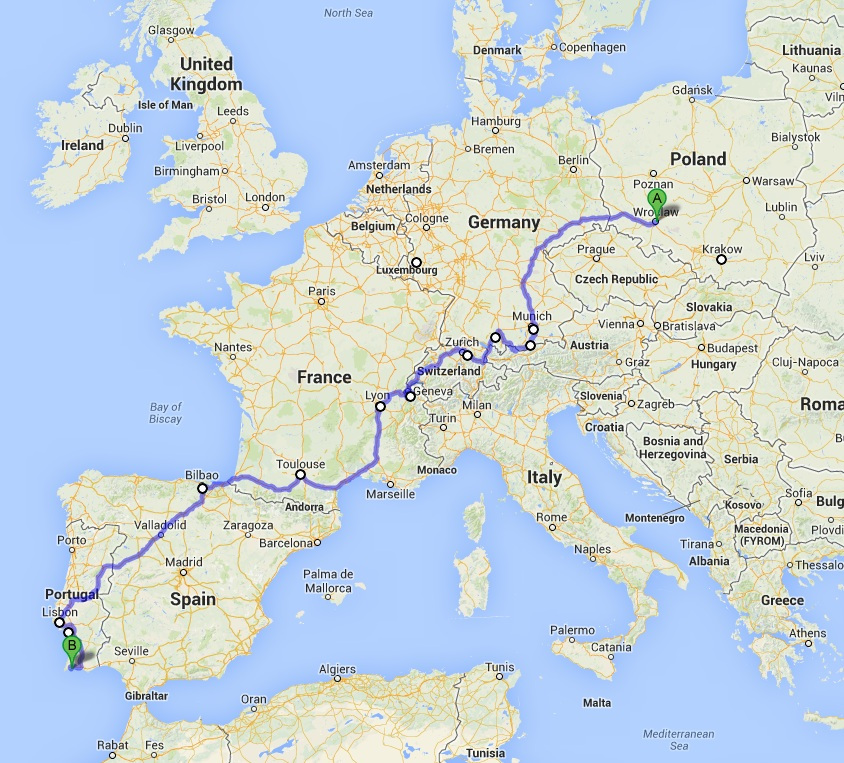
1) Hi Ewa, thank you for sharing your experience with us! What was the trigger that brought you from Poland to Portugal? Had you already in mind to develop a consulting practice in innovation management?
The pleasure is all mine, thank you for having me.
The decision to go to Portugal was actually a bit accidental… At 23, I was finishing my master degree and working at General Electrics. I was on a great start for managerial track, when one of my personal mentors advised me to make sure I choose a long term professional path that will be in accordance with my long term objectives, rather than the one that was dictated by the social expectations or local job market opportunities. I had already four year experience in different sectors and positions, and fortunately was reasonable … and adventurous enough to listen to the advice. I actually take the step back, and give myself the chance to find my own path rather then follow the dream path across corporate leader that was the holly grail of my generation. It was a bit a lip of faith on my side.

So there I am informing my bosses that, even though I actually like my job, I am leaving it to undertake another degree abroad. I was always very attached to Poland and immigration never crossed my mind before, that supposed to be an adventure, opportunity to learn in new environment and get the time and space to learn also more about myself and clarify what I really want to achieve professionally in my life.
The specific choice of Portugal was really just dictated by the fact that I had very limited knowledge about the country and culture. I was already familiar with the majority of European countries and I was looking for something new and unique. I was very excited to learn about Portugal being so distant from my home land – Poland.

I definitely didn’t think about my own company at the time…at least not consciously… and even less, of having it in Portugal. But I was always passionate about innovation and entrepreneurship, the way they can help us do what used to be considered impossible and how it can make a difference…and even more how the lack of openness for innovation can be destructive. The history of Lodz, the city I grew up in, taught me a lot about that, from the good to the worst examples…
2) When you first came to Portugal, what struck you in the Portuguese way of innovating? What is different there from other European countries that you know?
Portugal is full of contradictions. It is a country where a high attachment to tradition blends strongly with technological skills and resourcefulness. However, the motivation to provide innovation is not usually dictated by the desire to be first, to be better than others, to be innovative for the sake of innovation, like in some cultures where innovation is just trendy. Portuguese people love to enjoy life. Therefore, innovative solutions are commonly the result of looking to simplify tasks, to provide highly user friendly solutions that just make life easier and allows you to enjoy it more.
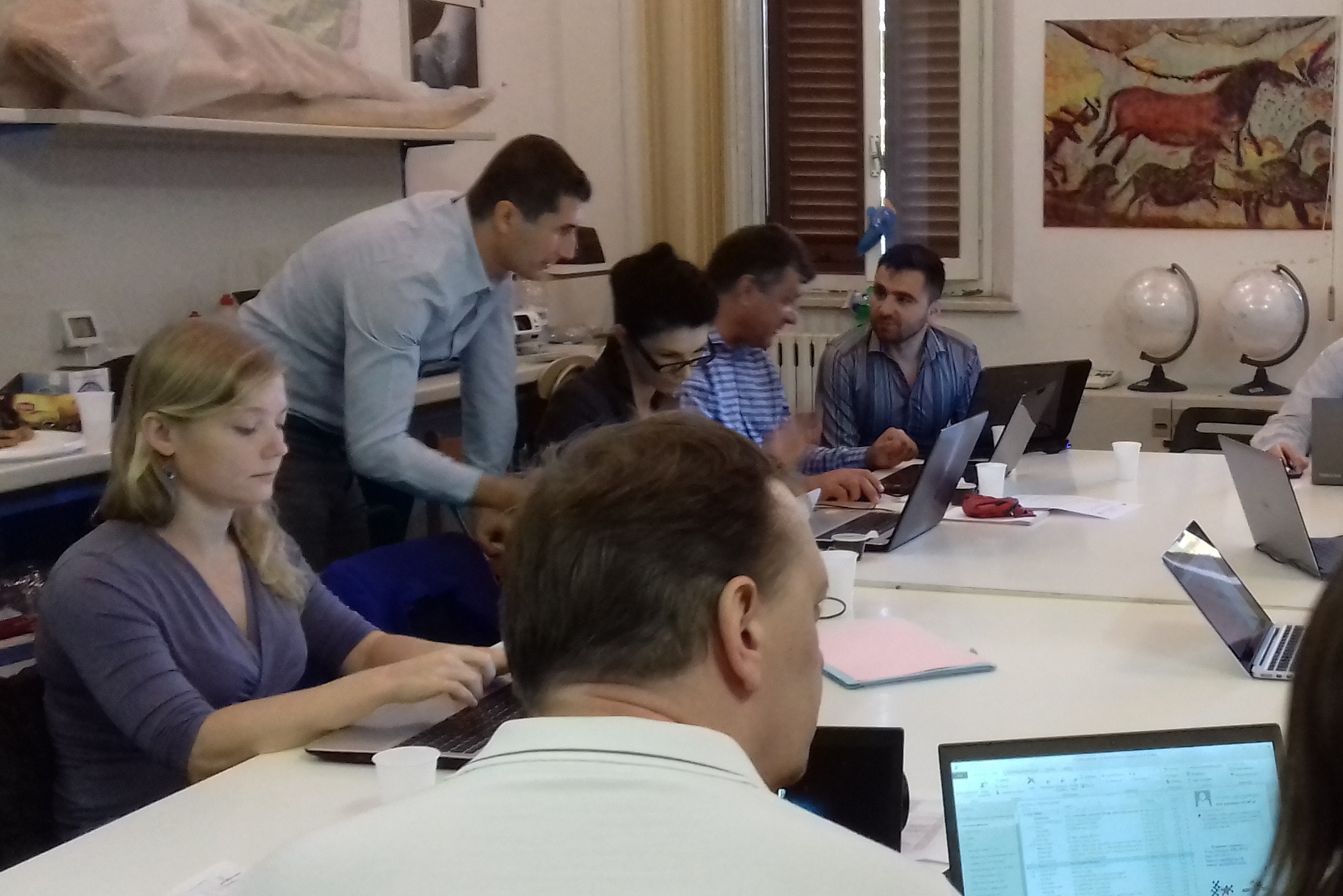
I.e. while I travel the world, and see many new solutions in bank systems, I still find the Portuguese ATM system that allows you to manage majority of your financial needs from the level of ATM amazing. In Portugal for years you can just use almost any ATM to deal with your bills or pay your taxes or online shopping without having a credit card, charge your phone or just access your account numbers….. That’s just one of the examples of innovation looking to make life of general population easier, and this one really does. It is just surprising that the solution is not generally adopted across Europe…
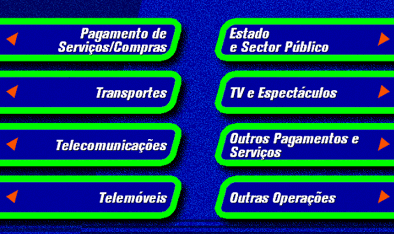
…but that just underlines the general problem of the country. Advanced technical knowledge is there, unfortunately the management knowledge is not sufficient to effectively capitalise on it….
However, Portugal is really changing. Since I moved there seven years ago people became more interested and involved in entrepreneurship and innovation. You can also see a big change of the culture. Portuguese actually got more open to try new things. Unfortunately, there is a common ignorance what innovation actually is. Even in our business environment we often need to explain that being an innovation consultant doesn’t actually mean that we write applications for public R&D funding for our customers. Sadly, I learnt that it is actually what almost all companies advertising as innovation consultants do in Portugal.
3) How did you start the business, who were your first customers, and what are the next steps that you have in mind for E&D consulting practice in innovation management?
I always knew that I will start my own company one day. Since childhood I assisted my mom in running her own business. Thanks to it, I knew the good and bad sides of being an entrepreneur, had a chance to observe different entrepreneurial patterns around me, and I knew what it takes to run a business. I also saw first-hand how easily companies fail. Already as a child I had an example of a spectacular failure of a company in my family due to bad financial management, just due to lack of cash flow monitoring. Along the time with every economic downturn I observed a number of companies in our environment fail due to the lack of management skills. So I knew that to be successful you need to know not only the customer needs, and how to meet them, but also how to keep your numbers in place, and that you need multidisciplinary knowledge in the first place … and more – the passion that helps you going when situation seems helpless. So that is what I knew I needed to get before getting into entrepreneurship. And that’s what I gathered over the years across different educational experiences, working across industries, different organisations, and ultimately countries.

The fact of opening our company at the specific moment was however another ‘in the heat of the moment’ decision. At the end of 2016 I was very frustrated with my job. I couldn’t stand the shortsighted thinking, bureaucracy, lack of clear strategy and constant office politics… So I quit. I was just about to leave to Poland for half a year when,during a goodbye lunch with my colleague Daniela, after discussing the reasons for my departure she just mentioned ‘you remember when we were joking we should open our own company? What do you think about it?’. As a few of international partners have already asked me during my few last weeks, why I don’t start doing things on my own, my answer was quick. ‘There is one problem …I am leaving in 2 days and there are some opportunities we can explore while I am in Poland that can’t wait, if we are serious. Are we stubborn enough to do it in 2 days?’ And of course we were stubborn enough!

First customer, was actually a total surprise. We were asked to design innovative methodology for supporting inclusive sport for Portuguese Winter Sports association. Skiing is one of my biggest passions, so I was recommended as a person that can incorporate knowledge of projects, and innovation, and passion for winter sports.

The next steps… After the first years when we were testing the market, which is at very initial stage of understanding the innovation management, we finally are looking to increase our focus on innovation, as we were previously working on broad scope of management topics. We will soon reach the place when we have sufficient portfolio of products purely focused on innovation and increased awareness of our business environment to do so. Further, we are to become a certified training organization to meet some specific needs of our customers. We also started some discussions with a person that we would see in our company to lead social innovation department, as we see big needs in the area and lack of competent people. The plans are as always ambitious, but as you know in innovation environment everything may change extremely fast, so we are constantly adjusting our plans to the market, and our customer needs. What is constant though with us is that we always focus on increasing our internal competences, and looking for new challenges.
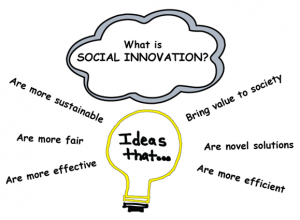
4) Why did you decide to stay?
In Portugal?…. well, definitely the people………They are sometimes difficult to manage, but I can’t underline enough how amazing it feels to leave in a place that people care about others. In most cases, even if we struggle to work together, it doesn’t stop us from being great friends at the end of the day. Being treated in the first place as a human being, rather than as a holder of professional category is just priceless for me.

5) What are the challenges that Portugal is facing in term of innovation, and what is their on-going plan to make a foray in innovation and tech?
The biggest challenges are mostly related with building effective support environment and knowledge required for ensuring continuance of innovation, and the lack of understanding of innovation. Firstly, Portugal created a broad net of support structures for entrepreneurship and innovation, but their effectiveness is really limited due to the lack of knowledge based long term strategy. The organisations often lack staff with actual knowledge in the area or are just understaffed in that scope, focusing more on administrative workers. To add to that, the collaboration between business and universities in innovation scope is really rare. Portuguese higher education system where publications are main focus of professors’ evaluation from one side, and exclusivity conditions in professors contracts excluding them from gathering practical market experience, generates a big gap between business and academia. There is a big innovation potential being wasted. That in a small country as Portugal having a very big number of universities, and a high number of SME lacking R&D capacities seems really unreasonable.
From the other side, as not only in Portugal, many people mix innovation with technology. It is difficult to discuss innovation with i.e. in agricultural sector if they see only high tech industry under the innovation label.
But some very innovative companies really struggle with the lack of association of Portugal with innovation abroad. We had a case when a company lost a huge contract in Germany just because they didn’t trust in Portuguese innovation. At the end, the chosen by Germans runner up didn’t meet their expectations after all, and they finally reconsidered. But it just shows that the lack of innovation branding of Portugal is a problem.

What is the plan? In practice the effective measures supporting innovation are in Portugal rather regional then global.
There are some great local examples of measures to support innovation at local level, but currently it is just a beginning for Portugal in creating the regional innovation systems. You can see there are different methodologies being tested and finally some pieces are starting to work, in some places faster than in others.
The general strength of Portugal is the IT sector. They have very good IT higher education, and a big number of graduates in the field. Together with very affordable wages and estates, it attracts foreign investments in the area. Especially Fin Tech became very strong, slowly making Lisbon and Porto the IT locations for many multinationals. There are even those that see a big growth opportunity in Brexit, as Portugal became a cheap alternative for the London based financial services ….

There are also great examples of measures increasing the visibility of Portugal on the innovation and entrepreneurship map of the World. Among others, I believe that bringing WebSummit to Lisbon contributed a lot here. Its impact is even broader. It really made Portuguese people excited about innovation and entrepreneurship. Coverage in media of the event can be compared to the football World Cup … and in Portugal, as you can imagine, this is huge. I was very surprised how meaningful that event is for the Portuguese community across the whole country.
6) Can you share an example of E&D Consulting fostering cooperation on regional and international level in the areas of entrepreneurship, innovation and smart development?
Sure…that is for me the best part of doing what we do. Of course we do it with every consultancy. Either it is a micro-company or a big public organisation, by helping them to improve and grow, we contribute to their success, and the general innovativeness and development. But for me it is not only about the business. I believe that with knowledge and talent there is a level of responsibility to put it into good use, so we try to do so. Every year we try to develop at least one collaborative project that could help solve issues at regional and international level. That gives us the opportunity to provide our expertise to groups that don’t usually have access to it. We started that with invitation from our Polish partner to join their efforts in building a solution to job market skills mismatch within Engage project within Eramus+ program.
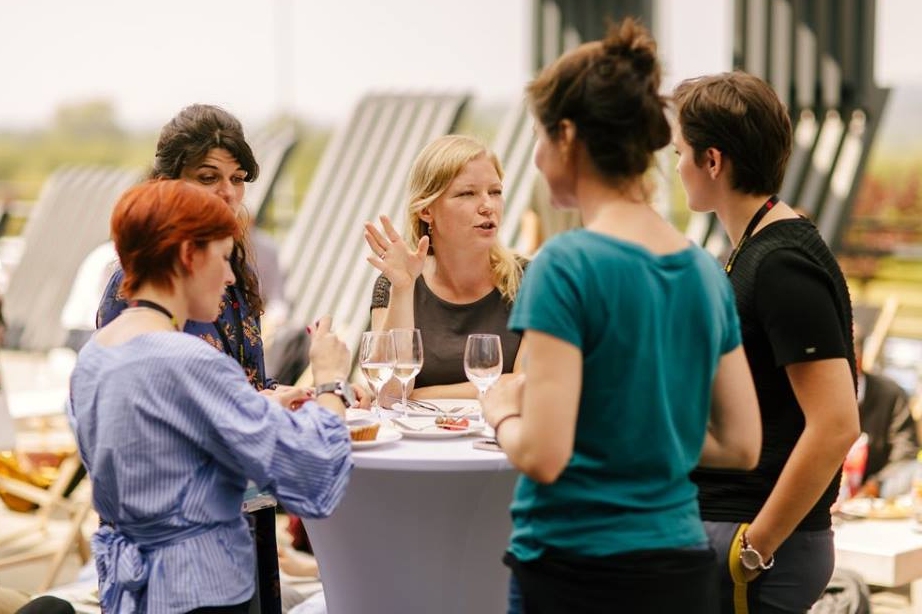
Then based on some feedback from our business environment we designed the IN_DIGIT2EU project to build an e-learning solution for SME that wish to internationalise but lack the knowledge and skills to do so or just want to verify what their SME needs to improve to increase their chance of success on international level…
This year I finally found a moment to wright a project that would support teaching innovation basics to low-skilled adults, to make innovation more inclusive. I really hope to start it in the fall this year.
As you can see we work in those projects on a broad scope of issues. It allows us to work with groups that are often out of the scope of our activity. It provides us not only with opportunities to contribute our expertise, but also to learn, and exchange knowledge and different visions. Then, we can share it with our customers to help them improve and grow.
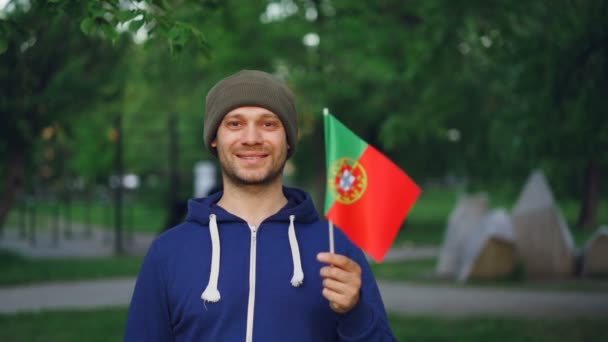
7) Why is it an asset in innovation to mix different cultures like you do? How does it benefit to the consulting projects that you complete at international scale?
Absorbing different cultures makes you think differently. Most of people see reality through the lens of a specific culture they grew up in. They interpret events, behaviors, and generate ideas based on some assumptions coming from their experience and environment. When you move to a place with a distant culture or live with people representing different cultural backgrounds, you learn that even basic assumptions or references that seemed for you ‘engraved in stone’ can be completely invalid outside of your country. That really helps you to become more innovative, giving you much broader perspective and open your eyes to new possibilities. But, even more importantly, it helps you to deal better with people.
Across countries we have different way of expressing ourselves, communicate as well as deal with our fears and difficulties. So first of all multicultural experience helps you contextualize and translate the messages that people communicate. And that is not only coming from national perspective. Also across professional groups, industries or even generations … Secondly, it also makes you more emphatic and perceptive which is very important in management and especially in consultancy. Often to understand problems or needs, you must understand not even what people say, but exactly what they don’t want to say.
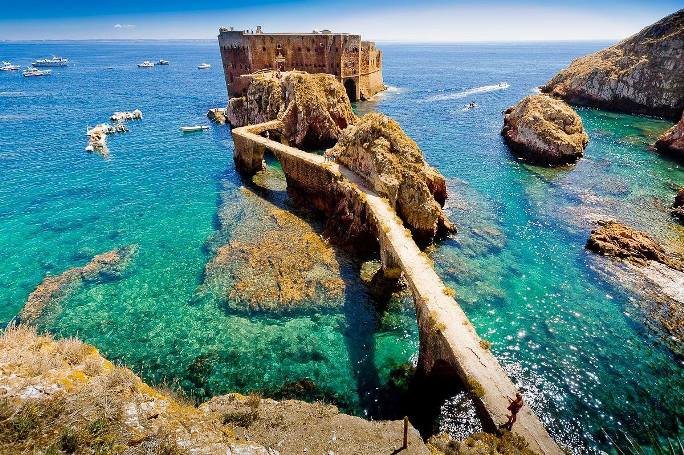
Thirdly, it may position you better to encourage people involvement in innovation. Especially, coming from the culture where failure was not an acceptable option, I understand that people can have strong reaction in face of fear and often inconsistent with their day-to-day behavior. That cultural mix I got embedded in, allowed me to be much more patient, and supportive when people start behaving irrationally. It helps managing crisis situation, and support people to get prepared and get through the periods of high uncertainty level which is a daily bread in the world of innovation.
And in international project it especially helps you not to treat too seriously misunderstandings, conflicts or problems that appear… it helps you to first make sure that there is really a serious problem. Usually when you actually look closer at common issues in international projects they often come from language difficulties, wrong interpretations of statements or intentions and similar misunderstandings. So often after repeatedly making people clarify what they meant, we discover that they were actually trying express similar points of view…
The benefits from multicultural experience are for my work really broad, but I think that knowledge of different culture is extremely important for many different aspects of our live. Because of that, I love to teach the multicultural management. I think it is one of the ‘must have’ skills in the modern world. But there is no better way to reach it, but by exposing yourself, and embedding in external culture.
Wait! Before you go…
Choose how you want the latest innovation content delivered to you:
- Daily — RSS Feed — Email — Twitter — Facebook — Linkedin Today
- Weekly — Email Newsletter —
 Nicolas Bry is Orange Startups Studio COO. He entices Orange employees into becoming intrapreneurs, bringing their idea to life within Orange business. International executive, he sets-up innovation devices for new business. International speaker, writer with RapidInnovation.fr, guest lecturer at the Google Academy mini-MBA, visiting innovation professor at Telecom ParisTech, MediaSchool & EM Lyon, freelance consultant for the EC. Follow him at @nicobry.
Nicolas Bry is Orange Startups Studio COO. He entices Orange employees into becoming intrapreneurs, bringing their idea to life within Orange business. International executive, he sets-up innovation devices for new business. International speaker, writer with RapidInnovation.fr, guest lecturer at the Google Academy mini-MBA, visiting innovation professor at Telecom ParisTech, MediaSchool & EM Lyon, freelance consultant for the EC. Follow him at @nicobry.
NEVER MISS ANOTHER NEWSLETTER!
LATEST BLOGS
Credit Card Shenanigans
It must be great to be in the credit card business in the United States. Demand is relatively inelastic and regulation is lax, so you can charge whatever you want for an interest rate, increase your fees once or twice a year, and make additional money off cash withdrawals and foreign exchange transactions.
Read MoreBuilding an Experience
As people become ever more immune to traditional advertising and marketing, branding will become more important. Branding is all about building an emotional connection with customers. Making the decision to follow a strategy focused on building a brand is not without peril, however, as it means that you will have to choose to not do certain things, like pursue a low price strategy.
Read More- « Previous
- 1
- …
- 4,132
- 4,133
- 4,134




